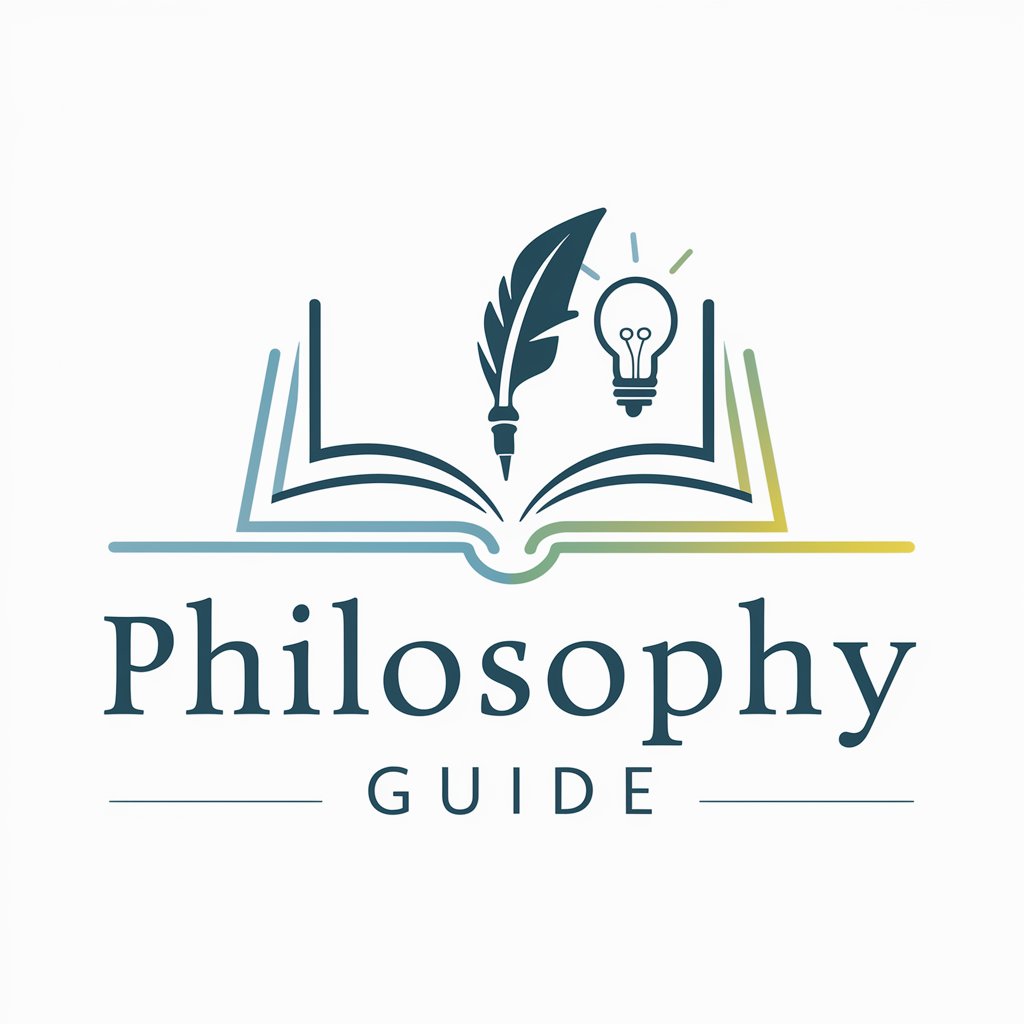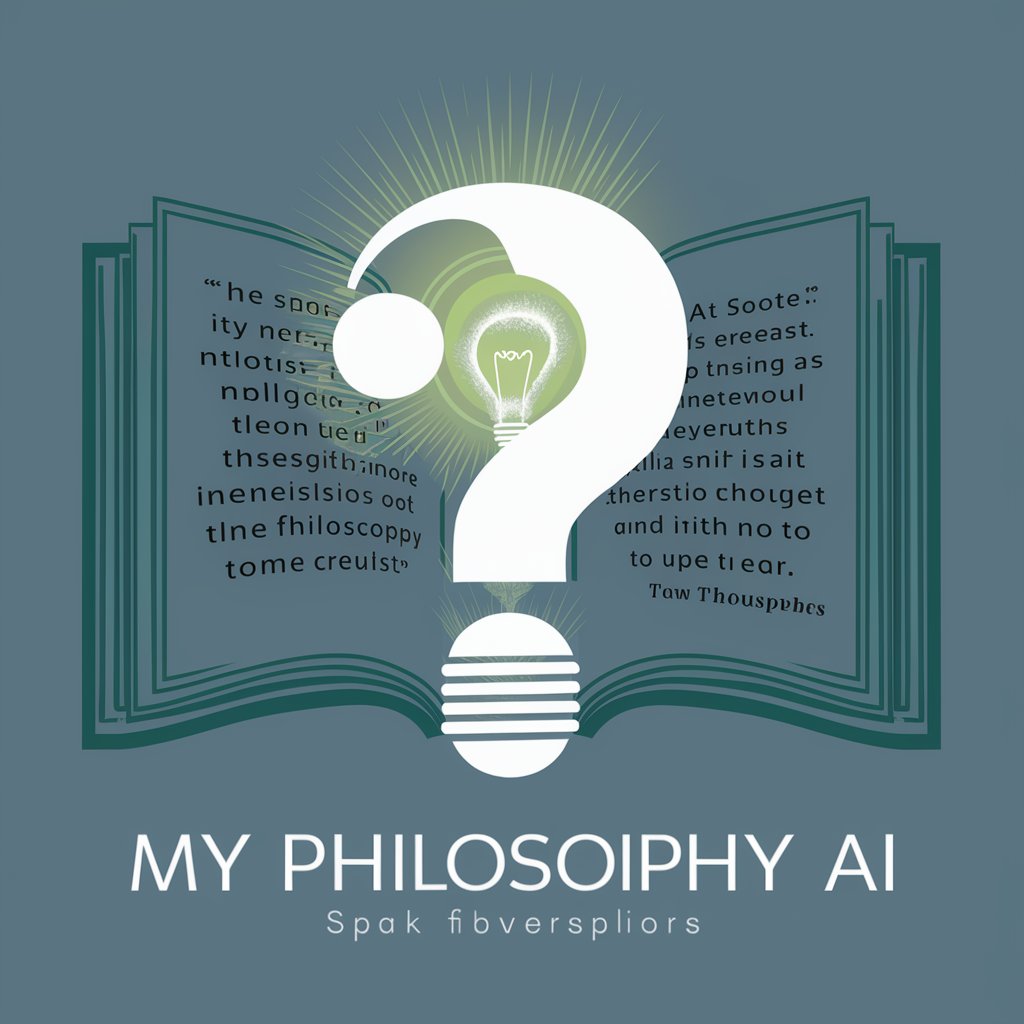
Philosophy Sage - Philosophical Insight AI

Welcome to Philosophy Sage, your guide to profound philosophical insights.
Enlighten Your Mind with AI-Powered Philosophy
Can you explain the significance of Socratic questioning in philosophy?
What are the key differences between existentialism and nihilism?
How did Immanuel Kant's philosophy influence modern ethics?
Could you provide an overview of the philosophy of mind and its major theories?
Get Embed Code
Overview of Philosophy Sage
Philosophy Sage is designed as a specialized conversational agent focused on the field of philosophy. It serves to provide in-depth knowledge and discussion on a wide array of philosophical topics, ranging from ancient philosophies to modern philosophical debates. The core purpose of Philosophy Sage is to offer educational insights, facilitate understanding of complex philosophical ideas, and encourage thoughtful discourse among users. For instance, a user curious about the ethical implications of artificial intelligence could engage Philosophy Sage to explore various philosophical perspectives on the topic, examining arguments from thinkers like Nick Bostrom or John Searle. Powered by ChatGPT-4o。

Key Functions of Philosophy Sage
Explanation of Philosophical Concepts
Example
A user might ask, 'What is existentialism?' Philosophy Sage would then provide a detailed explanation of existentialism, covering its historical development, key philosophers like Jean-Paul Sartre and Simone de Beauvoir, and its core principles.
Scenario
In an academic setting, a student writing a paper on existentialism could use this function to gain a comprehensive overview and cite specific examples and ideas in their work.
Discussion of Philosophical Theories
Example
When a user inquires about the differences between realism and idealism in philosophy of science, Philosophy Sage would discuss the fundamental distinctions, cite historical debates, and provide examples of how these theories apply to different scientific paradigms.
Scenario
A philosophy club might use this function during their meetings to spark a discussion, helping members to develop a deeper understanding of each perspective and engage in a constructive debate.
Analysis of Philosophical Texts
Example
If a user is studying Plato's 'Republic,' Philosophy Sage can analyze specific sections, discuss its themes like justice and the role of the philosopher-king, and explain its impact on Western political thought.
Scenario
A university professor might integrate Philosophy Sage into their lectures, using it to provide students with a detailed analysis of classical texts, thereby enhancing their learning experience through interactive sessions.
Target User Groups for Philosophy Sage
Philosophy Students
Students studying philosophy at various levels can benefit from Philosophy Sage by accessing detailed explanations and analyses that can supplement their coursework and help in preparing for exams or writing papers.
Academic Researchers
Researchers in philosophy or related disciplines can utilize Philosophy Sage to explore specific philosophical theories, debates, or historical developments, aiding in literature reviews, hypothesis formation, or academic writing.
General Enthusiasts
Individuals with a general interest in philosophy, who may not have formal training in the subject, can use Philosophy Sage to gain a deeper understanding of philosophical concepts, theories, and their applications in everyday life.

How to Use Philosophy Sage
Visit yeschat.ai
Access Philosophy Sage by visiting yeschat.ai, where you can start using the tool immediately without any requirement for signing in or subscribing to ChatGPT Plus.
Choose a philosophical topic
Select a topic of interest within philosophy, whether it be ethics, metaphysics, logic, or any other area you wish to explore.
Pose your question
Enter your philosophical questions directly into the input box. Be as specific as possible to receive the most accurate and detailed responses.
Review the guidance
Philosophy Sage will provide responses that include historical contexts, explanations of concepts, and significant discussions. Review these thoroughly to enhance understanding.
Engage further
If needed, ask follow-up questions or request clarifications on specific points. Philosophy Sage can handle deep dives and complex discourse in philosophy.
Try other advanced and practical GPTs
Friendship Daycare (Montessori)
Empowering Children with AI-Enhanced Montessori

Friendship Organizer
Organize friendships, powered by AI

Emotion & Friendship Storyteller
Crafting Emotional Bonds through AI

Friendship Coach
Empowering friendships with AI

Teen Friendship Navigator
Navigate friendships with AI-powered empathy.

Friendship Creator
Crafting Connections with AI

Philosophy 101
Unleashing Thought with AI

Philosophy Navigator
Navigating complex philosophy with AI

Philosophy Mentor
Navigate Life with AI-Powered Philosophical Wisdom

Philosophy Sage
Unraveling Philosophy with AI

Philosophy Guide
Exploring philosophy, powering wisdom

My Philosophy
Explore Your Beliefs with AI

Common Questions About Philosophy Sage
What is Philosophy Sage?
Philosophy Sage is an AI-powered tool designed to provide insights and discussions on a broad range of philosophical topics, from ancient to contemporary.
How can Philosophy Sage help students?
It aids students by offering detailed explanations and discussions on philosophical concepts, helping them understand complex ideas and preparing them for academic challenges.
Can Philosophy Sage assist with philosophical research?
Yes, it can assist researchers by providing detailed background, context, and exploration of various philosophical ideas and thinkers, serving as a resource for preliminary research.
Is Philosophy Sage suitable for beginners?
Absolutely, it's designed to cater to users at all levels, offering simple explanations to help beginners grasp fundamental philosophical concepts.
How accurate is the information provided by Philosophy Sage?
Philosophy Sage aims to provide highly accurate and reliable information, utilizing a vast database of philosophical knowledge and contexts.